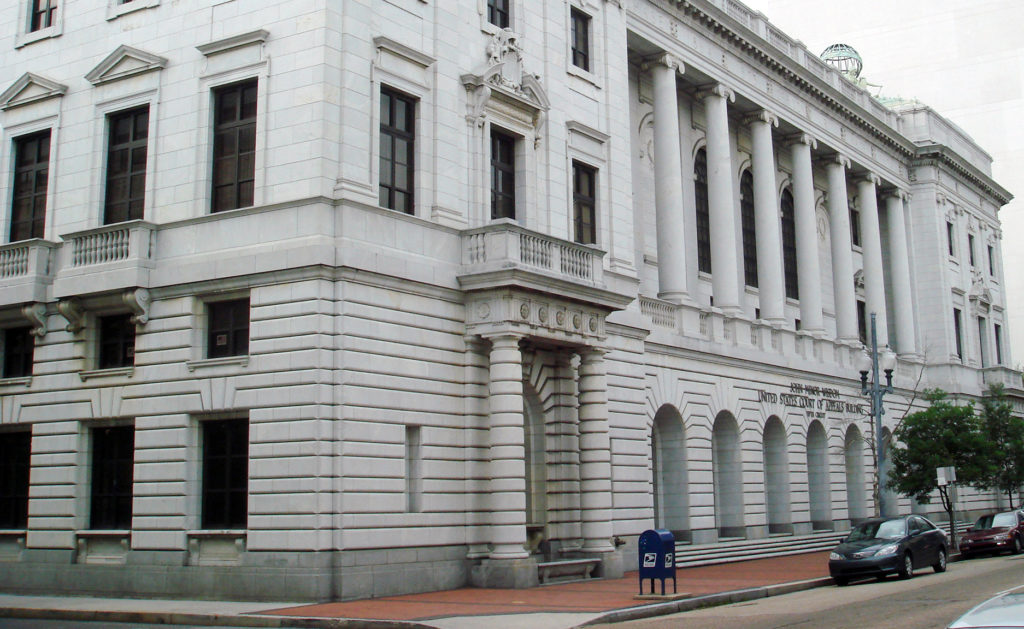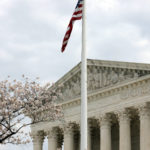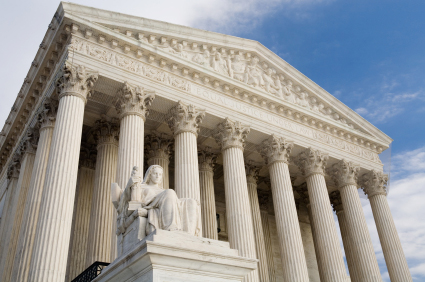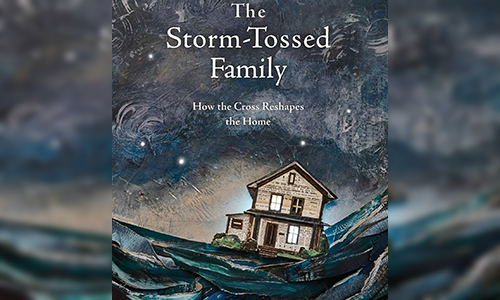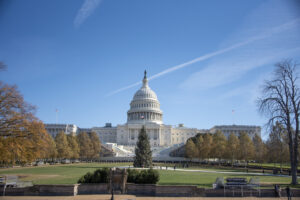
EDITOR’S NOTE: The Ethics & Religious Liberty Commission, which recently joined an amicus brief in a lawsuit involving the North American Mission Board, has issued an apology and explanation for an inaccurate description of Baptist polity and church autonomy.
NASHVILLE (BP) – Several weeks ago, the ERLC was presented with an invitation to join a brief written by lawyers at the Thomas More Society, in support of one of our SBC entities. We decided to join the brief because of the importance of the underlying religious liberty issues at stake.
But there’s no avoiding the fact that there were problems with language in the brief, specifically, language and statements that inaccurately describe Baptist polity and church autonomy and that are inconsistent with the positions the ERLC has repeatedly taken. We wish, instead of joining Thomas More Society’s brief, that we had written our own. We fully recognize this brief created concern and unnecessary confusion. Before we say anything else, let us say – we apologize.
Last week, we issued a statement to Baptist Press, focused on the principal point of the autonomy of local churches. But over the last week we’ve asked ourselves how else we can serve Southern Baptists to the best of our ability. One thing that may be helpful is simply more information, particularly on the amicus brief itself and the legal doctrine at the heart of it. We’re happy to provide that information.
The Autonomy of the Local Church
There are few issues nearer the center of what it means to be Southern Baptist than the autonomy of the local church. As Russell Moore has noted, “Some churches and denominations have decisions made at the top – by bishops or other leaders – and these decisions filter down to the churches. Our decisions go the other way. We think every church – no matter where or what its size – is governed by Jesus through His Word and by His gifts and is free from dictation by any other church or by some religious bureaucracy.” In fact, Moore argues, the issue of autonomy is the very reason “the SBC was able to turn around from its direction toward theological liberalism in the 1970s and 1980s toward orthodox, evangelical conviction. The people had the final say.”
This Baptist distinctive is something we point out regularly. For example, in the most recent brief we filed against the Governor of New York concerning religious liberty violations, the Southern Baptist Convention is described as “comprised of more than 46,000 autonomous churches and nearly 16 million members.” In a recent legal comment letter to the Internal Revenue Service, we noted that Southern Baptists “are congregationally governed. The key feature of congregational governance is the autonomy of the local church or church-associated organization.”
But autonomy is not only a Baptist theological distinctive but also an important legal category, commonly referred to as the ecclesial abstention doctrine or “the doctrine of church autonomy.” This legal doctrine of church autonomy means that the inner workings of local churches are free, or autonomous, from interference by the state. We advanced this argument in another amicus brief we filed in Whole Woman’s Health v. Texas Conference of Catholic Bishops alongside the Southern Baptists of Texas Convention and the Christian Life Commission of the BGCT. In that brief, we argued that the First Amendment rights held by churches “not only includes autonomy in their selection of religious leaders, but also ‘the freedom to decide for themselves, free from state interference, matters of church government as well as those of faith and doctrine.’”
To the brief in question, the argument the brief was seeking to establish was not one about “hierarchy” or “umbrella organizations” (and, again, should not have used that language) but rather about the inherently religious character of Southern Baptist cooperative ministry. All Southern Baptist churches are autonomous, self-determining and subject only to the lordship of Christ. At the same time, we freely cooperate with each other for the sake of the Gospel, and any associations, entities or conventions are, as the Baptist Faith and Message puts it, “voluntary and advisory bodies designed to elicit, combine, and direct the energies of our people in the most effective manner.” But the fact that they are organized by and for our churches also means these bodies are inherently religious, and therefore protected by the First Amendment and fully autonomous from interference by the state.
The ERLC, in service to the SBC, has always doggedly opposed state interference with the internal affairs of local churches and religious organizations. This is why we felt it was important to engage in this case in the first place. This does not dismiss concerns about the inaccurate language in the brief, but it does explain our underlying conviction, namely, the conviction that courts have no business interfering with the work of the church, whether deacon meetings or church discipline or even our cooperative Gospel work together as Southern Baptists.
What’s Next?
When it comes to defending religious liberty in the judiciary and the Christian ideal of a “free church in a free state,” as the Baptist Faith and Message puts it, we will continue to be tireless in our witness. To that end, we have already filed briefs in a number of cases this year, advocating for religious freedom for houses of worship in the midst of the COVID-19 pandemic, for the religious freedom rights of faith-based adoption and child welfare providers and in a range of other cases. That will continue.
Moving forward beyond this particular brief, we want to make absolutely sure that we live up to the high expectations we have for ourselves in service to Southern Baptist churches. That begins with a few internal procedural changes to ensure we don’t find ourselves here again. To be specific, the process of drafting and joining amicus briefs regularly involves short timelines, but moving forward we will require a standardized minimum timeline for review. Such a measure would have either corrected the issues with the original brief or prevented our involvement with it.
At the same time, some have wondered, understandably, whether the language in this individual brief could have harmful future consequences. Let us reassure Southern Baptists on this point: an amicus brief is not binding precedent and cannot override the clear, consistent statements Southern Baptists – including the ERLC – have made about the autonomy of the local church. And to be clear, the language about “hierarchy” in this brief is an aberration from the clear pattern of not just how Southern Baptists carry out cooperative ministry together but also from the arguments we have made consistently in a number of legal venues. Finally, know that in the days ahead we will take every opportunity available to us in the judiciary to defend autonomy rigorously and to ensure there is unmistakable clarity on Southern Baptist polity.
